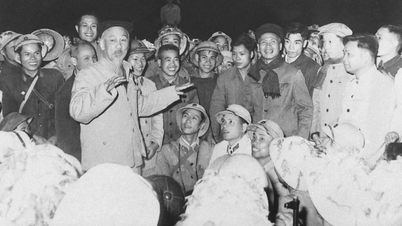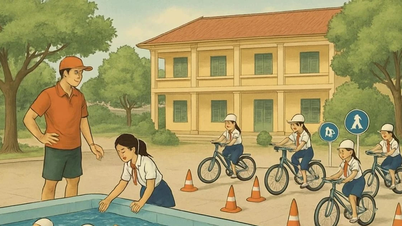In China, under pressure to find a job, new graduates tend to seek out life-coaching courses.
 |
| Many Chinese students are confused about their career orientation after leaving school. (Source: VCG) |
The job market is fiercely competitive.
As she prepared to graduate, Zhao Xinli recalls feeling “very confused” about her future career plans. The history major had a desk job offer, but it was completely unrelated to her major. While Zhao hated the idea of taking on a boring position, she also knew that the job market was fiercely competitive and waiting for a better offer could be a big mistake.
“I didn’t know what to do and I was afraid of making the wrong choice,” Zhao told Sixth Tone. The 22-year-old tried to seek advice from people around her and various websites, but to no avail. One day, while scrolling through the social app Xiaohongshu, Zhao came across an ad for a life-coaching service.
Curious, Zhao signed up for a consultation. The course helped her form deeper attitudes and pushed Zhao to make a decision. After a few sessions, she decided to take the job offer.
“I realized that I shouldn't fixate on the so-called 'ideal career'. Instead, I should look at my first job from a positive perspective, gain experience, discover my strengths, and prepare for the next job.”
China is expected to produce a record 11.6 million college graduates by 2023. In this fiercely competitive environment, having a clear career plan can be a huge advantage. However, many Chinese students complain about the lack of quality guidance at domestic universities.
On Weibo, the top-voted comments about school career planning classes describe them as “not useful” and “super boring.”
This has opened up opportunities for the life coaching industry. Xiaohongshu is filled with posts from young people sharing their life coaching experiences and their own journeys to becoming life coaches.
It’s unclear exactly how many life coaching courses there are in China, but the industry is growing rapidly. The number of life coaches from China registered with the International Coaching Federation quadrupled from 346 to 1,383 between 2017 and 2022. In fact, the number of practicing coaches is likely much larger due to lax regulation.
Chloe Chan, a life coach based in Hong Kong, says the number of young Chinese clients seeking her advice has been steadily increasing. The increase is not just due to the tough job market, but today’s graduates are often overwhelmed by the plethora of career ideas they see on social media.
“They see more possibilities, they have more ideas. So they need someone to guide or inspire them.”
She says that eight out of 10 people who struggle with depression need to see a counselor rather than a life coach. “If you have anxiety, your mood is very negative. When you come back to normal, you are at zero. I can’t take you from minus to zero, but I can take you from zero to one,” Chan often reminds clients.
Jiang Zhou, 26, came to his first consultation earlier this year after his life plans fell apart. Jiang had hoped to settle permanently in the Netherlands after graduating with a master’s degree in finance, but failed to find a suitable job and eventually returned to China.
Back home, Jiang felt “lost” and unsure of what to do next. A friend suggested he try talking to a life coach.
Jiang spoke to not one but four different life coaches, charging up to 500 yuan (about 70 US cents) an hour. “It was a great spiritual experience,” he said. He now lives in Dali City and works as an art therapist.
Complex and stressful
Not everyone is convinced, however. Life coaches stress that the industry in China is still “in its infancy”: Regulation is lax, coaches are often inexperienced, and clients are often unsure of what they want to get out of a consultation.
 |
| The life coaching profession is thriving on social media platforms. (Source: Xiaohongshu) |
For life coaches, China’s new generation of college graduates is often a difficult group to serve. Scarlett Huo, a certified life coach based in Beijing, says most of her clients are in their 25s and 30s and want help with career transitions.
This group tends to feel more confused than previous generations, Huo said. Not only are they trying to navigate the legacy of a post-pandemic economy , they’re also beset by a deluge of often confusing or contradictory career advice.
“One of the problems young people face today is that they have too much information. They have big plans but very few skills,” Huo said.
Huo gave the example of a 26-year-old client obsessed with the idea of becoming financially independent by age 35. This person was influenced by the financial independence, retire early (FIRE) movement that has gained huge traction on Chinese social media.
Huo says early retirement is a positive goal to set, but committing to it without thinking it through often leads to disappointment.
“When you set goals that are too aggressive and don’t see results quickly, it’s easy to get discouraged.” She tries to help these clients find their purpose in life and gain a deeper understanding of themselves and their career options.
From 2015 to 2019, the number of professional coaches worldwide increased by 33% globally, according to a 2020 report by the International Coaching Federation (ICF). ICF estimates the global professional coaching industry is worth $2.85 billion, with 71,000 professional coaches worldwide. Demand has been particularly high during and after the Covid-19 pandemic.
Source



![[Photo] Special flag-raising ceremony to celebrate the 135th birthday of President Ho Chi Minh](https://vphoto.vietnam.vn/thumb/1200x675/vietnam/resource/IMAGE/2025/5/19/1c5ec80249cc4ef3a5226e366e7e58f1)
![[Photo] Party and State leaders attend the special art program "You are Ho Chi Minh"](https://vphoto.vietnam.vn/thumb/1200x675/vietnam/resource/IMAGE/2025/5/18/6895913f94fd4c51aa4564ab14c3f250)

![[Photo] Party and State leaders visit President Ho Chi Minh's Mausoleum](https://vphoto.vietnam.vn/thumb/1200x675/vietnam/resource/IMAGE/2025/5/19/d7e02f242af84752902b22a7208674ac)



















![[Video] Expanding health insurance benefits: Coverage for home medical examination and treatment from July 1](https://vphoto.vietnam.vn/thumb/402x226/vietnam/resource/IMAGE/2025/5/19/e09527f710e744e09330bf5b313c7720)












































































Comment (0)